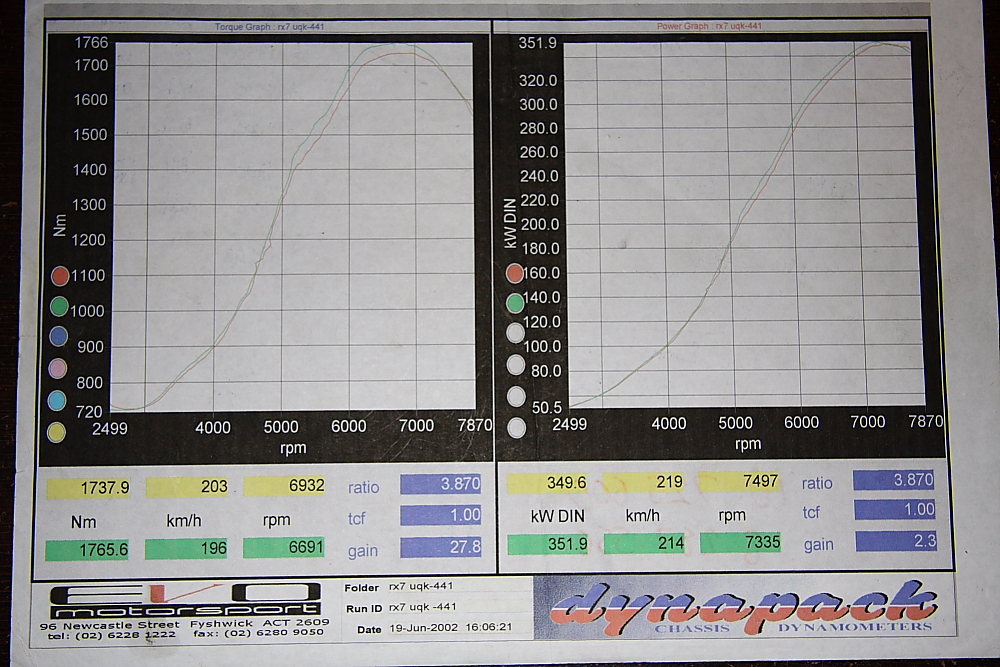Quote:
Originally Posted by Luthor

Hi!
I've searched and looked around, no one has really put any number to this, what's the accepted limit for the S5 TII-tranny?
English is my second language, so my question might come off wrong, but basically, where is when you put your hands up and say that "Nope, the S5 turbo transmission just won't cut it here"?
Application is street and track, no drag.
Closest thing I've got to an answer online was "frequently used in cars with over 500bhp".
|
 This is power and torque at the rear hubs on my old FB RX7 with T2 S5 tranny
This is power and torque at the rear hubs on my old FB RX7 with T2 S5 tranny Link here for more detail >
http://www.riceracing.com.au/resources/Zoom-27.pdf &
http://www.riceracing.com.au/water-injection.htm
T2 S5 trans in FB (divide by 3.9 *diff ratio*
and multiply by 1.15 TCF *< drive line loss correction factor, commonly used by JAPS who run dynapacks on FD's to estimate engine power*
to get engine torque)
I never broke a trans but I went through two of these units, one simply twisted the input shaft (Tilton twin plate clutch) could not remove the trans from the engine!) and the other wore the case hardening off 3rd gear, after about 30,000km of running at this power level and the trans became quite noisy.
I have run these to over 600rwhp (see Mazda Capella on my site) but that same car when loaded up with people on 27psi simply exploded the gear box case and 3rd gear!
How much power you can run through something is relative to the weight, it plays a huge factor. If you keep the mass around 1300kg total you can run a 700bhp engine behind these transmissions (though long term they will wear out). IF the weight of your car (say loaded with sluts on a Friday night) is much higher and you really give it full power then I say you will break it easy.
Twisting of the input shaft happens when you run sticky tires and you are on full power in 2nd and 3rd gear and you hit bumps and the wheels get air born, this creates a shock loading and this pretty much always twists the shaft, thsi happens much worse on GHETTO twin plates and above that have separate drive hubs rather than one fully splined floating hub (like on all top shelf clutches today).
Hope this helps.